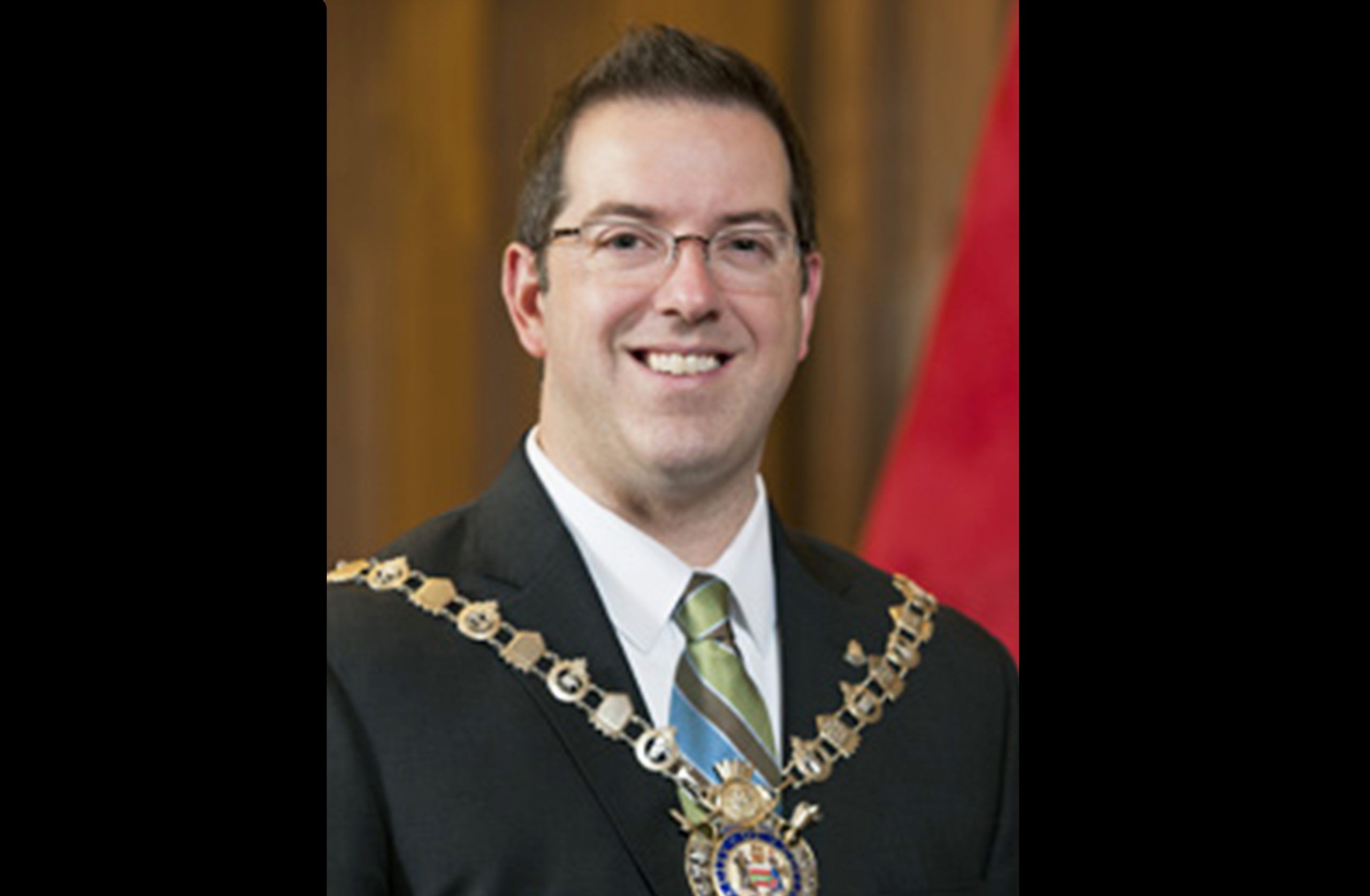GUELPH – Enough with the doom and gloom.
Instead of focusing on data that points to enormous mental health needs across all demographics in this country, this year’s Mayors Event for Mental Health zeroed in on four fun, easy, creative outlets that can add physical and mental health benefits to anyone’s life.
On Oct. 13 Guelph Mayor Cam Guthrie invited four speakers to the event, which was started in 2000 with then-mayor Joe Young.
The 2022 event featured the following guest speakers:
- Priya Shah, a music psychotherapist at Homewood Health Centre;
- Courtney McLeod, a life coach;
- Marcey Gray, program coordinator at Spark of Brilliance; and
- Tamaura Proctor, a registered horticultural therapist at Homewood.
The title of this year’s event was Creative Paths to Wellness and their talks showed how music, laughter, art and caring for plants can help with mental health.
Shah demonstrated how music therapy works. She sang affirmative words and played the guitar while participants closed their eyes and tuned into their breathing.
Shah said music can do a lot to support mental health – and you don’t have to be a musician to benefit.
Music can express and validate your emotions; it can be a connector and a motivator. It can change your mood and broaden perspective.
She said in sessions at Homewood, patients would often play with the lyrics of familiar songs to express their own emotions and along those lines, she offered a few activities for the lay person:
- create a playlist for mood management;
- substitute lyrics of songs with your own words;
- write new verses and keep the chorus of songs you know; and
- create music on your own.
Guthrie said he’s a drummer in a band and he finds hitting the drums can be a real tension release.
“I pound those drums sometimes,” he said.
McLeod talked about the importance of play and having fun to our mental health – and specifically about laughter yoga.
Laughter yoga is not about yoga postures, but breathing.
There are all kinds of physical benefits to laughing: it improves circulation and works the cardiovascular system, decreases cortisol in the brain and increases dopamine – and these make you feel good.
McLeod said it doesn’t matter if the laughter is authentic or forced, the benefits are the same.
She put participants through a few exercises too. Pretend rain is falling on you. Now pretend the rain is laughter. Run around and capture the laughter, scoop it up and splash it over yourself. Laugh while doing it.
Laughter yoga is more effective when done with others because laughter is contagious. When you laugh with others you do some bonding, she said.
But it can also be done virtually. There are many laughter yoga sessions on YouTube including laughteryoga.org.
“It’s a simple tool,” she said. “Use it when you need it. Life is too short not to laugh and have fun every day.”
Gray is both a graduate of Spark of Brilliance and now a program coordinator for the program that uses art to help people with addictions and mental illness.
Like music therapy, art helps put voice to feelings and provides a sense of control and a sense of accomplishment.
“You don’t have to be talented to make art,” she said. “It’s the process, not the product, that leads to improved well-being.”
Gray said it can be difficult, but people benefit when they try to cultivate moments of creativity every day.
“Healing can be found in creative activities,” she said.
All patients at Homewood Health Centre get a session or two in horticultural therapy, Proctor said, because it is so beneficial.
It promotes natural wellness, nurturing behaviour and a deeper, broader appreciation for nature.
“We have an innate tendency to seek out nature,” Proctor said.
She suggested finding a “sit spot” – a place to sit in nature and be mindful of what’s going on around you.
Ten or 20 minutes is enough to feel grounded and to feel part of the natural environment, she said.
The program at Homewood includes seed planting and transplanting, working in the greenhouse or the outdoor gardens on the grounds, nature journalling, and using plants in art projects.
House plants, and caring for them, are another way to bring nature into our lives, she said. And nature journalling can be a way to connect with what you are feeling in the moment.
The event lasted about an hour and Guthrie said about 50 people had signed on for the Zoom meeting.
“Laughter, art, music and plants – I encourage everyone to spread the joy we learned today,” Guthrie said as the event concluded.




